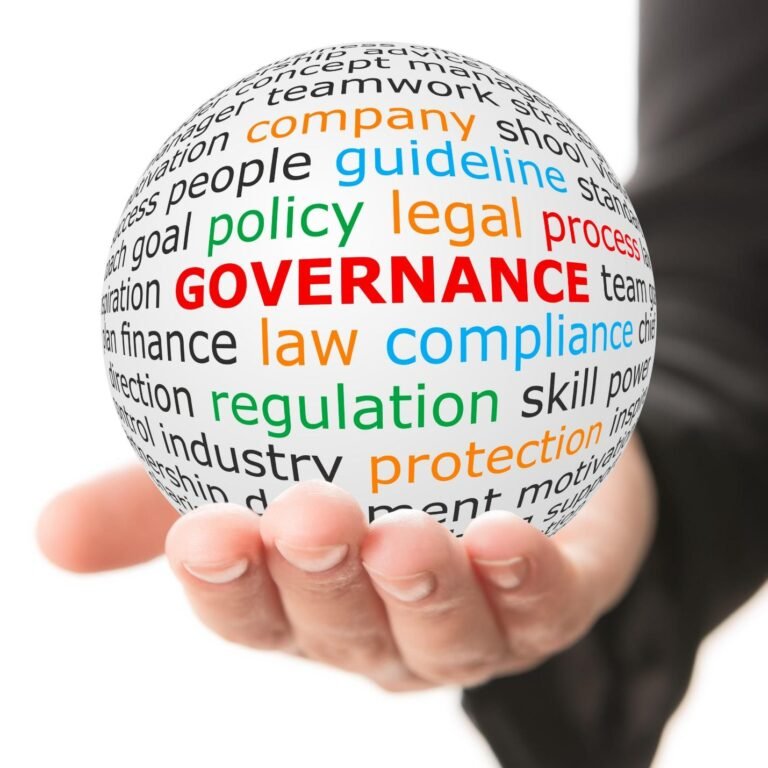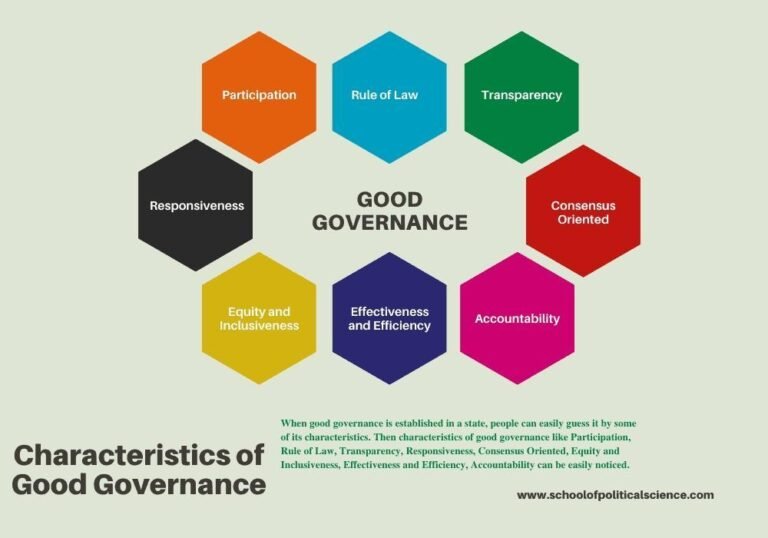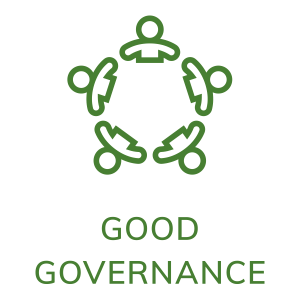Why Good Governance?
Marzan Binte Monwar (Meem)
Governance means how a country or institution is organized at the highest level. Good governance means there is equal and proper management, guidance for processes, and the right to make decisions with responsibility.
Governance emerged as society transitioned from a nomadic way of life to a more stable civilization. It became important for societies to establish hierarchies for labor. As the population grew, groups of people — typically the elderly — formed laws to ensure that everyone in the society would benefit and be held accountable for their individual and collective actions.
Additionally, these groups of people were in charge of preserving order, harmony, and peace both inside their groups and as a whole. They had the titles “Government” or “Ruling Body”.
Governance can be subtle and may not be easily observable. In a broad sense, governance is about the culture and institutional environment in which citizens and stakeholders interact among themselves and participate in public affairs. It is more than the organs of the government.
The importance of governance has gained momentum and wider meaning. It enhances legitimacy and is a way to analyze politics, governments, businesses, and organizations. Governance helps balance the powers of members, and their accountability and enhances the viability of the government.

Good governance implies an administration that is sensitive and responsive to the needs of the people and is effective in coping with emerging problems in society by framing and implementing appropriate laws and policies. “When decision-making rights are not clear, however, conflict and declining organizational performance are not far away. It is seldom the case that smooth running operations can occur for long in the absence of good governance,” says Nahkies. It is good governance, which ensures the overall direction, effectiveness, supervision, and accountability of a country. It is the active and productive cooperation between the State and citizens, and the key to its success lies in the powers participating in political administration.
Citing the United Nations Economic and Social Commission for Asia and the Pacific (UNESCAP), the concept of good governance has eight principles.

Participation: Participation by all, irrespective of gender or ethnicity, is a key cornerstone of good governance. Participation could be either direct or through legitimate intermediate institutions or representatives. It is important to point out that representative democracy does not necessarily mean that the concerns of the most vulnerable ones in society would be taken into consideration in decision-making. Participation needs to be informed and organized. This means freedom of association and expression on the one hand and an organized civil society on the other hand.
Rule of Law: Good governance requires fair legal frameworks that are enforced impartially. It also requires full protection of human rights, particularly those of minorities. Impartial enforcement of laws requires an independent judiciary and an impartial and incorruptible police force.
Transparency: It means that decisions taken and their enforcement are done in a manner that follows rules and regulations. It also means that information is freely available and directly accessible to those who will be affected by such decisions and their enforcement. It also means that enough information is provided and that it is provided in easily understandable forms and media.
Responsiveness: Good governance requires that institutions and processes try to serve all stakeholders within a reasonable timeframe.
Consensus-Oriented: There are several actors and many viewpoints in a given society. Good governance requires mediation of the different interests in society to reach a broad consensus in society on what is in the best interest of the whole community and how this can be achieved. It also requires a broad and long-term perspective on what is needed for sustainable human development and how to achieve the goals of such development. This can only result from an understanding of the historical, cultural, and social contexts of a given society or community.
Equity and Inclusiveness: A society’s well-being depends on ensuring that all its members feel that they have a stake in it and do not feel excluded from the mainstream of society. This requires all groups, but particularly the most vulnerable, to have opportunities to improve or maintain their well-being.
Effectiveness and Efficiency: Good governance means that processes and institutions produce results that meet the needs of society while making the best use of resources at their disposal. The concept of efficiency in the context of good governance also covers the sustainable use of natural resources and the protection of the environment.
Accountability: Accountability is a key requirement of good governance. Not only governmental institutions but also the private sector and civil society organizations must be accountable to the public and their institutional stakeholders. Who is accountable to whom varies depending on whether decisions or actions taken are internal or external to an organization or institution. In general, an organization or an institution is accountable to those who will be affected by its decisions or actions. Accountability cannot be enforced without transparency and the rule of law.
Conceptually, the elements of governance indicated above tend to be mutually supportive and reinforcing. Accountability is often related to participation and is also the ultimate safeguard of predictability and transparency. In the absence of accountability to affected groups, even predictable decision-making of autonomous government agencies may result in the latter placing agency interests above those of the former. Similarly, transparency and information openness cannot be assured without legal frameworks that balance the right to disclosure against the right to confidentiality, and without institutions that accept accountability. Again, predictability in the functioning of the legal framework would help ensure the accountability of public institutions. At the same time, predictability also requires transparency, because, without information about how similarly placed individuals have been treated, it may be difficult to ensure adherence to the rule of equality before the law. Finally, a transparent system facilitates governmental accountability, participation, and predictability of outcomes. So, every single principle is interrelated with one another. To ensure good governance, all the characteristics should be ensured first.
Why Good Governance is Needed?
Governance is all about the ‘Big Picture’! Governance includes all the practices, processes, and policies that help to guide the state in the right direction. Any task that focuses on the ‘big picture’ is part of governance — tasks like checking the finances are stable, creating long-term strategies, planning risk management, and keeping an eye on comparative world politics.

The term ‘governance’ generally refers to the method or practices used by a country to manage affairs at the highest level. For this reason, good governance is only achievable using systems and policies that ensure the repeatability and consistency of processes.
Governance refers to the exercise of political and administrative authority at all levels to manage a country’s affairs. Understanding governance requires the identification of both the rulers and the rules, as well as the various processes by which they are selected, defined, and linked together and with society generally.
Governance, to be more specific, Good Governance is a tool of-
Economic Development: Without good governance in a state, the economic development of that state is not stable. All elements of economic development, such as production, distribution, investment, and even consumption, face various obstacles. If good governance is established, such obstacles will be removed and the fair distribution of state resources will be possible.
Social Development: Good governance is essential for social development. Its role does not end only with economic development. The result of development ensures that every class of people in society enjoys basic fairness. People of different religions, castes, and classes live in a society. Now, if there is no fair distribution of wealth among all these people, social discontent will increase.
Again, the proper distribution of wealth is not enough. We have to make arrangements so that minority people can walk without fear. In the same way, various reform laws have to be enacted to reduce the gap between men and women in society.
Political Development: Its relationship with political development is quite important. If the political leaders of a country are not active in establishing good governance, then its establishment in that country is not possible. Its success depends largely on the sincerity of the political leadership and adherence to the rules and regulations of the political establishment.

The constructive cooperation between the political institutions and the political parties and the formulation of programs for the welfare of the people play an important role in establishing good competition and good governance among themselves. For example, in a democracy, cooperation between the government and the opposition helps to establish it in the country.
The development of a country wholly depends on the existence of good governance. So, it works as the fundamental pillar of the development of a country, especially in third-world countries like Bangladesh. Governance constitutes a major challenge for Bangladesh nowadays. Its underperformance is evident in many areas of national life. It is crystal clear from evidence as well as the pronouncement of our policymakers and international donors that Bangladesh’s improvement in the governance realm is not keeping pace with the progress achieved in some areas of economic and social policies. Such a gap in the country’s governance efforts implies that political regime management has become a central constraint to further consolidation of democracy as well as improvement of the quality of governance in Bangladesh.
Good governance refers to mobilizing the people of a country in the best direction possible. It requires the unity of people in society and motivates them to attain political objectivity. In other words, it ensures proper utilization of all the resources of the state for its citizens which ensures sustainable development.
In summary, governance encompasses the processes by which organizations are directed, controlled, and held to account. It includes the authority, accountability, leadership, direction, and control exercised in an organization. It can be concluded that good governance is an ideal concept to achieve its goals. And yet, of course, implementing good governance is not as easy as it appears on paper. There are only a few countries that have proven successful in implementing this concept in their governance.
Good governance and development complement each other. It protects the social, economic, and political rights of citizens irrespective of race, religion, caste, or gender. As a result, a country’s development index tends to go up. Greatness can be achieved when good governance principles and practices are applied throughout the whole organization and that’s why governance is important.
Marzan Binte Monwar (Meem) is a Government and Political Science researcher.



